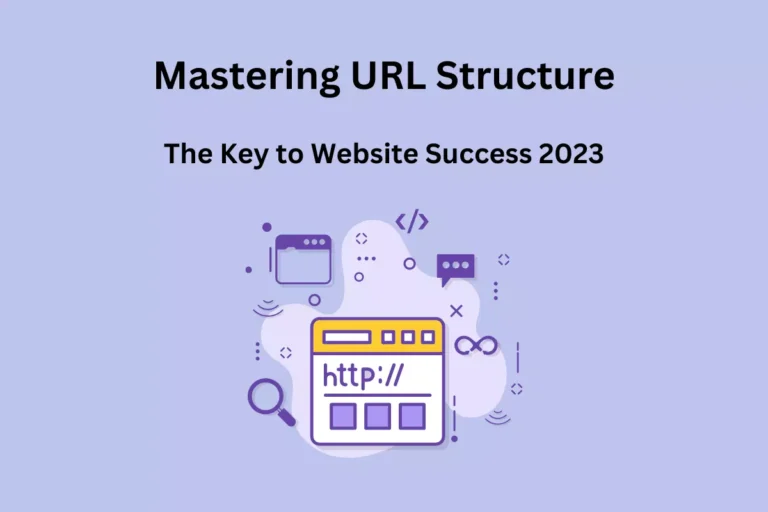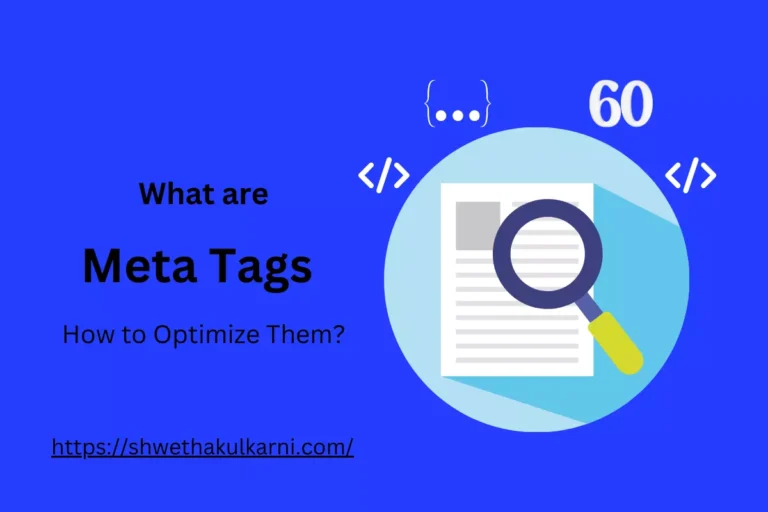Are you wondering if your website is performing well in search engine results pages (SERPs)?
Are you struggling to drive organic traffic to your site? Conducting an SEO audit can help you identify areas of improvement and create a plan to boost your website’s visibility.
In this article, Let’s explore the top 5 key reasons why you should conduct an SEO audit.
Introduction
As a website owner or digital marketer, you need to ensure that your website is ranking high on SERPs and driving quality organic traffic.
However, achieving this goal can be challenging, especially if you are not familiar with SEO best practices. That’s where conducting an SEO audit comes into play.
An SEO audit is an in-depth analysis of your website’s current performance, covering both technical and non-technical aspects.
The audit report provides insights into what’s working and what’s not, along with actionable recommendations to improve your site’s performance.
What is an SEO Audit?
Before we delve into the reasons why you should conduct an SEO audit, let’s define what an SEO audit is.
An SEO audit is a comprehensive evaluation of your website’s technical and non-technical aspects that impact your search engine visibility.
The audit covers a range of factors, including site architecture, on-page optimization, backlinks profile, mobile-friendliness, site speed, and more.
It helps you identify technical issues that may be hindering your site’s performance and develop a plan to address them.

5 Key Reasons Why You Should Conduct an SEO Audit
Now that we’ve defined what an SEO audit is let’s explore the top 5 key reasons why you should conduct an SEO audit.
Reason #1: Improve Your Search Engine Visibility
Search engine visibility is critical to driving organic traffic to your site.
Conducting an audit helps you identify factors that may be negatively impacting your site’s ranking on SERPs.
By addressing these issues, you can improve your site’s search engine visibility and drive more organic traffic.
Reason #2: Identify Technical Issues
Technical issues can negatively impact your site’s performance, including slow page load time, broken links, duplicate content, and more. Read my article on Technical SEO Key Elements to understand more about Technical SEO.
Conducting an audit helps you identify these issues and develop a plan to fix them.
Reason #3: Optimize Your Content
Content is king in SEO.
Conducting an audit helps you analyze the quality of your content, identify gaps, and develop a plan to optimize it.
By improving your content you can attract more traffic and improve your site’s engagement metrics.
Read my article on content optimization to improve your content.
Reason #4: Analyze Your Backlinks Profile
Backlinks are a critical ranking factor in SEO.
Conducting an audit helps you analyze your backlinks profile and identify low-quality links that may be hurting your site’s ranking. By removing or disavowing these links, you can improve your site’s backlinks profile and boost your ranking on SERPs.
Reason #5: Stay Ahead of Your Competitors
Conducting an audit also helps you stay ahead of your competitors.
By analyzing their SEO strategy and identifying areas of improvement, you can develop a plan to outperform them in SERPs.
How to Conduct an SEO Audit?
Now that you know why an SEO audit is important, let’s take a look at how you can conduct one.
Set your goals:
Before starting an SEO audit, you should define your goals and objectives. What do you want to achieve from the audit? Is it to improve your website’s ranking in search engine results pages or to identify technical issues?
Analyze website content:
Analyze your website’s content to identify gaps and opportunities for improvement. Use tools like Google Analytics and Google Search Console to identify your most popular pages and keyword rankings.
Check website structure:
Check your website’s structure to ensure that it’s optimized for search engines. This includes checking your URL structure, internal linking, and sitemap.
Analyze technical elements:
Analyze technical elements of your website, such as its speed, mobile-friendliness, and metadata. Use tools like PageSpeed Insights and Mobile-Friendly Test to identify any issues.
Review backlink profile:
Analyze your website’s backlink profile to identify opportunities for improvement. Use tools like Ahrefs or Majestic to identify your website’s backlinks and analyze their quality.
Create an action plan:
Once you have identified the issues and opportunities for improvement, create an action plan that outlines the steps you need to take to improve your website’s search engine optimization.
Benefits of Conducting an SEO Audit
Now that you know how to conduct an SEO audit, let’s take a look at some of the benefits of conducting an SEO audit:
Benefit 1: Identify Areas of Improvement
One of the most significant benefits of conducting an audit is that it helps you identify areas of improvement for your website’s search engine optimization.
By analyzing your website’s content, technical SEO, backlinks, and other key factors, you can develop an actionable plan to improve your website’s search engine rankings and drive more organic traffic to your website.
Benefit 2: Improve User Experience
Conducting an audit can also help you improve the user experience on your website.
By analyzing your website’s content and technical structure, you can identify any areas that may be hindering the user experience and develop a plan to improve it.
Benefit 3: Stay Ahead of Your Competitors
In today’s digital landscape, it’s essential to stay ahead of your competitors to succeed online.
Conducting an audit can help you stay ahead of your competitors by identifying areas for improvement and developing an SEO strategy that will help you outrank your competitors in the search engine results pages.
Benefit 4: Increase Website Traffic
By improving your website’s search engine optimization through an audit, you can increase your website’s organic traffic and drive more targeted visitors to your website.
This, in turn, can lead to increased leads, sales, and revenue for your business.
Benefit 5: Maximize Your ROI
Finally, conducting an audit can help you maximize your ROI by identifying areas of improvement and developing an SEO strategy that delivers results.
By investing in SEO, you can achieve a significant return on investment and grow your business online.
FAQs
What is an SEO audit?
An SEO audit is the process of analyzing a website’s search engine optimization to identify areas of improvement and develop an actionable plan to improve its search engine rankings.
What is the purpose of an SEO audit?
The purpose of an SEO audit is to evaluate your website’s current status and potential for improvement in terms of search engine optimization.
How often should you conduct an SEO audit?
You should conduct an SEO audit at least once a year or after significant changes to your website.
Can I conduct an SEO audit myself?
Yes, you can conduct an SEO audit yourself using various tools and resources available online. However, it is recommended to hire a professional SEO agency or consultant to conduct an audit for better insights and recommendations.
How long does an SEO audit take?
The duration of an SEO audit depends on the size and complexity of your website. It can range from a few days to a few weeks.
How much does an SEO audit cost?
The cost of an SEO audit varies based on the size and complexity of your website, the scope of the audit, and the expertise of the SEO agency or consultant. It can range from a few hundred to a few thousand dollars.
What tools are used in an SEO audit?
Several tools are used in an SEO audit, including Google Analytics, Google Search Console, Ahrefs, SEMrush, Screaming Frog, and more.
Can an SEO audit guarantee better ranking on SERPs?
No, an SEO audit cannot guarantee better ranking on SERPs. However, it can identify factors that may be hindering your site’s performance and provide recommendations to improve your ranking. The success of these recommendations depends on various factors, including your competitors’ strategy, Google’s algorithm updates, and more.
Conclusion
Conducting an SEO audit is crucial for the success of your website in today’s digital landscape.
By analyzing your site’s technical and non-technical aspects, you can identify areas of improvement and develop a plan to boost your site’s visibility and organic traffic.
Remember, SEO is an ongoing process, and conducting regular audits can help you stay ahead of your competitors and adapt to Google’s algorithm updates.
So, if you haven’t conducted an SEO audit yet, it’s time to get started.
Hire a professional SEO agency or consultant, or use the tools and resources available online to conduct an audit yourself.
Whatever route you take, the key is to take action on the recommendations provided in the audit report and monitor your site’s performance regularly.
Now I would love to hear from you.
Make yourself known by leaving a comment here. I look forward to your response and welcome any other ideas as they emerge!
As a digital marketing consultant, My ultimate goal is to empower businesses to thrive in the digital landscape. I believes that a well-executed digital strategy can transform a company’s online presence, drive growth, and create meaningful connections with target audience. To Know More Click Here!







